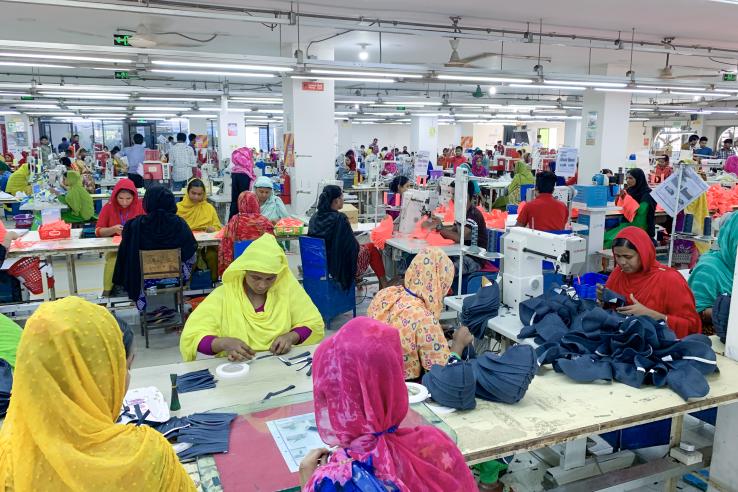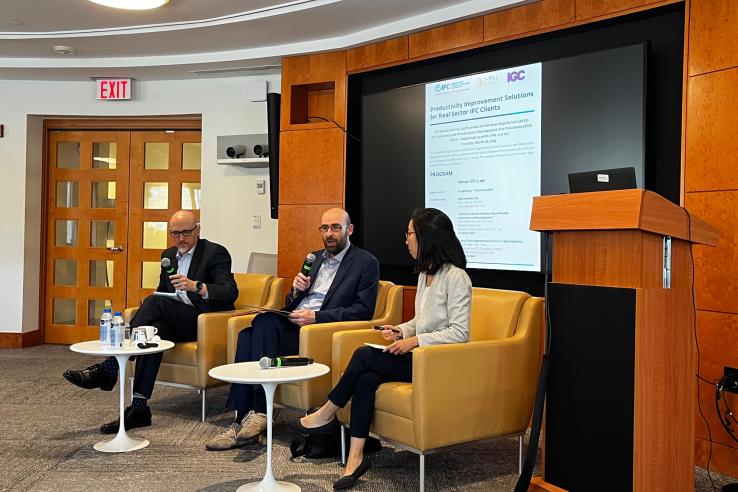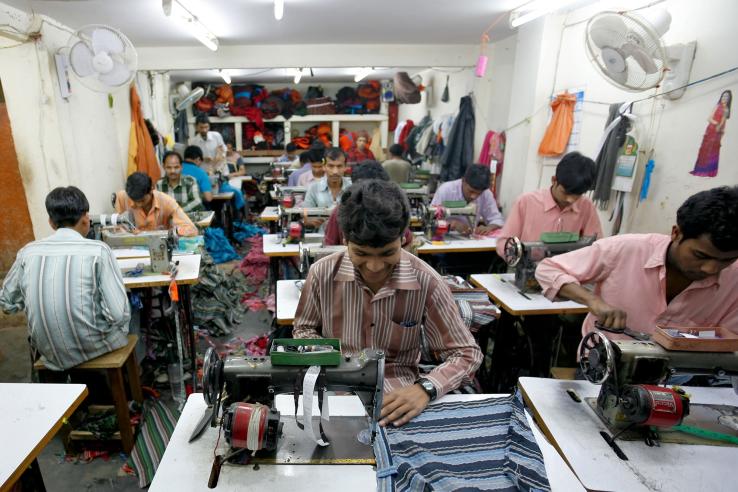Entreprises
Identifier des politiques et des programmes qui améliorent la productivité et stimulent la croissance des entreprises du secteur privé peut avoir des conséquences majeures en matière de développement et de réduction de la pauvreté. Le secteur Entreprises de J-PAL a donc pour objectif d’évaluer les méthodes les plus efficaces pour stimuler la croissance et la productivité des entreprises. Les études menées dans ce secteur visent également à mesurer l’impact de ces politiques sur le bien-être des travailleurs, l’environnement et l’économie dans son ensemble.
Les recherches réalisées par les chercheurs affiliés à J-PAL dans ce secteur ont pour but d’identifier et de limiter les contraintes qui freinent la croissance des entreprises. Parmi les sujets d’étude figurent notamment l’impact de l’amélioration des pratiques de gestion, l’effet des politiques visant à faciliter l’accès aux marchés et aux chaînes de valeur mondiales, les leviers politiques qui favorisent le développement des entreprises, ou encore l’importance des grandes entreprises dans la création d’emplois. Nous aimerions en outre voir émerger dans ce secteur de nouvelles études visant à explorer le rôle des entreprises comme moteur de la croissance économique, mais aussi à déterminer si les inégalités augmentent ou diminuent en fonction de la taille des entreprises et si les profits de ces dernières bénéficient à leurs employés par effet de ruissellement.
En plus d’aider les décideurs politiques à appliquer les résultats des évaluations aléatoires à leur propre contexte, les responsables et l’équipe du secteur se chargent également de rédiger des résumés d’évaluation, des pistes de réflexion et des notes de politique qui synthétisent les grands enseignements issus de la recherche.

Policy insight
Market access: Connecting firms and entrepreneurs to markets to spur business and job growth
Improved access to markets has often helped small firms in low- and middle-income countries grow by boosting firm revenues and profits. These interventions have been effective because they have led to new sales, helped firms connect with new types of buyers, and increased information sharing and...

Blog
Expanding access to financing for SMEs
Access to finance is critical for firms to grow, innovate, and create jobs that help workers escape poverty. However, small- and medium-sized enterprises (SMEs) worldwide are often underserved by financial institutions. In this blog, we explore early findings on SME financing for policymakers...

Evaluation
The Impact of Bid Training on Small Firm Growth in Liberia
Researchers evaluated the impact of a bid training program on the business performance of local small and medium-sized firms. The bid training led firms to bid on and win more contracts, with the positive impacts concentrated on a quarter of firms.

Blog
J-PAL expands efforts to promote corporate sustainability and social impact partnerships
After 20 years of evidence generation and synthesis delivered in partnership with cross-sector stakeholders, in the next decade, J-PAL is accelerating our work to bring evidence-based strategies to drive corporate sustainability and social impact.

Blog
J-PAL partners with the IFC and IGC to discuss global supply chains, sustainability, and research collaboration
Can more firms learn from randomized evaluations to improve business operations in developing economies? How can development institutions better support clients to achieve sustainable growth and key performance improvements in terms of productivity, gender, work-related practices, skills, and other...

Blog
Shaping the right incentives for firms to facilitate climate adaptation and improve environmental quality
IPA and JPAL have supported numerous rigorous research studies exploring diverse questions related to climate change and sustainable development. In particular, since 2020, the King Climate Action Initiative at J-PAL has funded several randomized evaluations addressing these questions as well as...

Blog
Jobs and Opportunity Initiative commits first round of funds for research on entrepreneurship and enterprise development
Covid-19 has had a dramatic and lasting impact on the micro, small, and medium enterprise landscape worldwide, driving many to shut down or radically reshape the way they do business. The consequences of this shift extend beyond the firm to the livelihoods of its workers and their families...

Policy insight
Supporting firm growth through consulting and business training
Economists have long identified large differences in productivity between countries and between firms. One potential explanation for the persistent gap is that some firms have better management practices than others.



